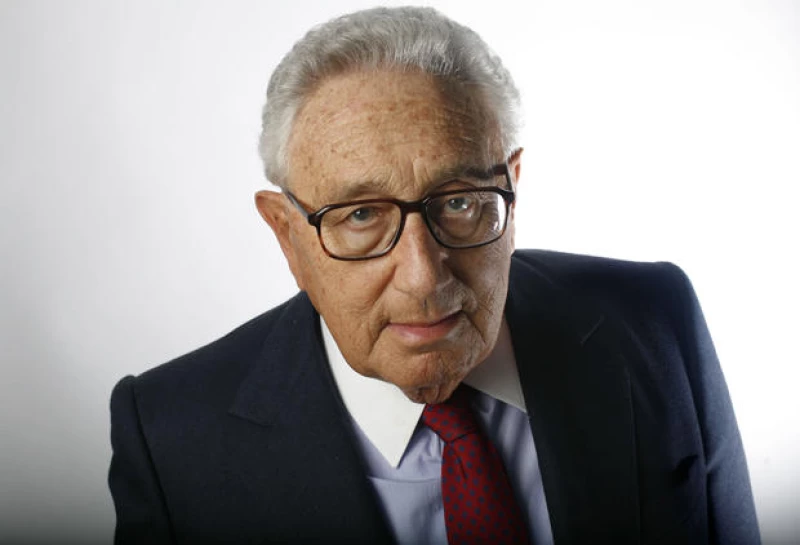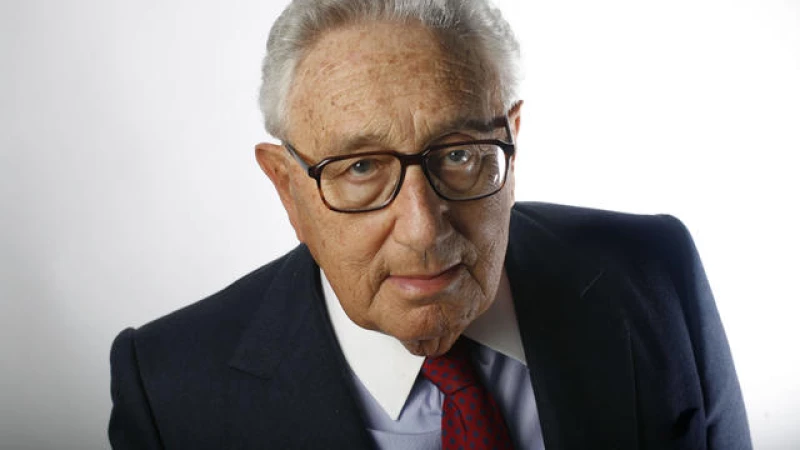Henry Kissinger, Influential Diplomat, Dies at 100
Henry Kissinger, one of the most influential and controversial diplomats of the 20th century, died Wednesday at age 100, his firm said.
Kissinger, who served as secretary of state and national security adviser under Presidents Richard Nixon and Gerald Ford, remained a prominent voice on foreign policy issues long after leaving government in 1977.
"I work about 15 hours a day," he told CBS News weeks before he turned 100, saying with confidence that world leaders like China's Xi Jinping or Russia's Vladimir Putin would likely take his calls.
He was known for his practice of "realpolitik" — engaging with the world based on practical objectives rather than moral ideals — and was credited with the secret diplomacy that helped thaw U.S. relations with China. But he was also accused of alleged war crimes for the bombing of Cambodia during the Vietnam War, backing Pakistan's genocide in Bangladesh, and green-lighting the Argentine dictatorship's "dirty war" against dissidents.
He was born in Germany on May 27, 1923, as Heinz Alfred Kissinger. Less than three months before Kristallnacht, in 1938, his Jewish family fled Nazi Germany and resettled in New York City, where he became known as Henry.
Kissinger's Journey
After his first year at George Washington High School, he took night classes and worked in a shaving brush factory during the day, according to "Kissinger: A Biography" by Walter Isaacson. After graduating, he enrolled in the City College of New York and planned to become an accountant. But he was drafted into the U.S. Army shortly after his 19th birthday.
Kissinger, who became a naturalized U.S. citizen in 1943, returned to his motherland as a German interpreter in the U.S. Army. He also arrested Gestapo members and helped liberate prisoners from the Ahlem concentration camp. "I had not realized until I saw the camp, the depths to which human beings could be reduced," he told the BBC in an interview that aired in July 2022.
He was awarded the Bronze Star for his time in the Army's counterintelligence unit developing informants that led to the Gestapo arrests.
In the following years, Kissinger completed his doctorate at Harvard and joined the faculty. In 1957, he was named the associate director of Harvard's Department of Government and Center for International Affairs. He was also a consultant to several government agencies, including the State Department.
Kissinger's Impact on Foreign Policy
In 1968, Kissinger was appointed as Nixon's national security adviser and later became secretary of state during Nixon's second term. He was the first to hold both positions simultaneously, and he continued to serve as secretary of state in the Ford administration after Nixon's resignation.

Kissinger's diplomatic efforts with the Soviet Union and China were pivotal in reshaping the Cold War. He successfully negotiated the Strategic Arms Limitation Talks and the Anti-Ballistic Missile Treaty with the USSR, which eased tensions between the two nuclear superpowers. Additionally, his backchannel talks with China in the early 1970s led to the establishment of formal diplomatic relations and Nixon's historic visit to China in 1972.
Furthermore, Kissinger's "shuttle diplomacy" played a crucial role in containing the 1973 Arab-Israeli war.
However, Kissinger's involvement in other conflicts around the world has been met with controversy. He played a significant role in the U.S. carpet-bombing of Cambodia during the Vietnam War, resulting in the deaths of thousands of civilians and contributing to the rise of the genocidal Khmer Rouge regime. Despite this, Kissinger was awarded the Nobel Peace Prize in 1973 for his efforts in negotiating an end to the Vietnam War.
Kissinger's Controversial Legacy
Henry Kissinger, the former Secretary of State and National Security Advisor, has drawn fierce criticism for his actions during his time in government. One of the most notable instances was his involvement in undermining a democratically elected government in Chile, which ultimately led to a military coup. Additionally, Kissinger sent weapons to Pakistan's dictator, whose regime carried out mass killings in what is now Bangladesh.
In 1976, when right-wing military leaders seized power in Argentina, Kissinger was quoted as saying, "If there are things that have to be done, you should do them quickly." This statement came at a time when human rights abuses were rampant, resulting in the torture, assassination, and disappearance of tens of thousands of people.
In response to accusations of being a war criminal, Kissinger dismissed them as "ignorance." He claimed that his actions were not conceived or conducted in such a manner. Despite the controversy surrounding him, Kissinger remained a prominent figure in foreign policy circles even after leaving government in 1977. He continued to advise presidents and consult for business clients well into his late 90s.
In a 2012 interview, Kissinger spoke about his relationships with various presidents, stating that he had done both small and significant things for ten presidents, starting with Kennedy. He also mentioned having a friendly relationship with President Bush 43.
More recently, Kissinger provided foreign policy advice to President Trump, who praised his "immense talent" during a White House meeting in 2017. Despite his age, Kissinger expressed his willingness to talk with Russian President Putin if asked by a sitting president.
Henry Kissinger is survived by his two children from his first marriage, Elizabeth and David, as well as his wife Nancy, whom he married in 1974.







